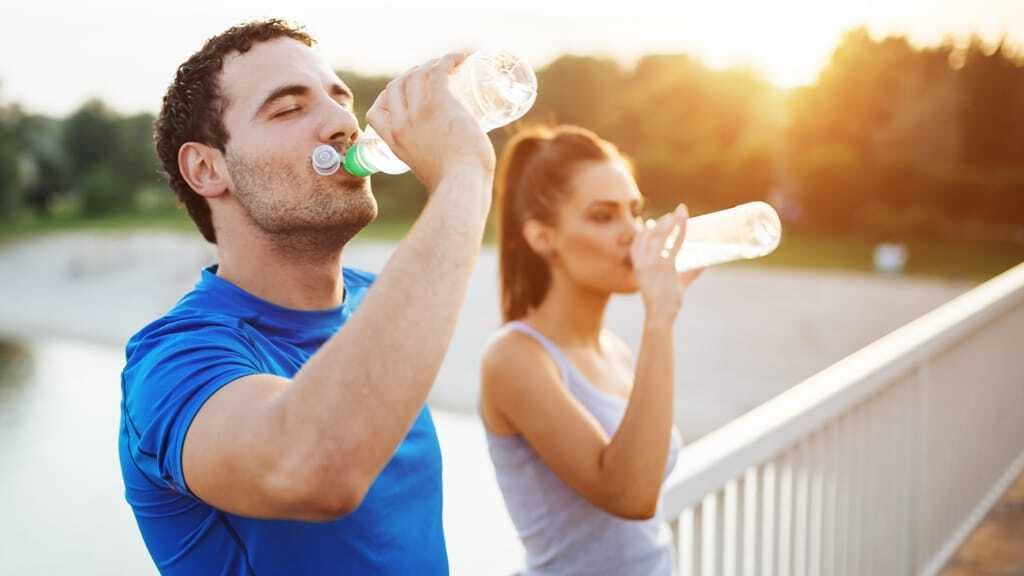Staying Safe During Summer Exercise

Regular exercise is among one of the best ways to stay healthy throughout your lifetime. During the hot summer months, taking some precautions can help you stay safe and avoid heat-related health risks. Before you go outside to run, walk, or perform any physical activities in hot weather, follow these health tips:
Dress Right.
Wear clothing that is light in color and wicks away sweat. Modern clothing manufacturers have come up with new fabrics and designs for activewear, but light colors (darker colors absorb heat), mesh sections, or cotton garments can help you stay cooler. If the sun is hot and bright, wear a comfortable cotton hat in a light color and UV-blocking sunglasses. Protect any exposed body areas with a good quality sunscreen of SPF 30 or higher.
Check the Weather.
If the weather forecast has a heat alert or the weather is extremely hot and humid, change your plans. If you exercise outdoors, ensure your workout is shorter and less intense, or move your training indoors. It is not worth risking your health for an exercise program. For weather above 90 degrees, your exercise should take place indoors.
Stay Hydrated.
During the summer months, ensuring you drink enough water when exercising is a primary health rule. Carry a water bottle with you, and drink from it often. You may not be aware of how much water your body is losing through sweat, and if you do not replenish the fluid, you are at risk of dehydration.
Watch for Heat Exhaustion or Heatstroke.
You need to be aware of the symptoms of heat exhaustion and heatstroke. These dangerous health conditions can arise when you have been exposed to high temperatures for several days. The signs of heat exhaustion are:
- Heavy sweating
- Muscle cramping
- Tiredness, unusual fatigue
- Feeling dizzy
- Headaches
- Nausea
- Vomiting
- Feeling weak
- Fainting
- Cool and moist skin
Heat exhaustion is dangerous and can be the first phase in a more serious condition, heat stroke, which requires medical intervention. The symptoms of heatstroke include:
- No sweat, your skin is hot and dry
- The pulse is rapid and weak
- Confusion
- Body temperature is 103 degrees or more
- Seizures
- Unconsciousness
- Altered mental state
Replenish with Salt.
While too much salt can affect your health, your body needs it. Salt leaves your body when you sweat, so you may need to replenish it by eating something salty. Just be sure not to overdo it.
Too Hot? What to Do.
If you have overheated during summer exercise, you need to cool off fast. Move into a cooler area as quickly as possible, and drink water. If you are with another person who is suffering heat stroke or heat exhaustion, cool the body down as soon as possible with ice or water, and give them water to drink. Symptoms such as confusion, fainting, or an altered mental state require immediate medical help. Take the person to the ER or call 911.
If you suffer from a heat-related condition, medical intervention may include:
- Immersing the body in cold water.
- Cool water is misted onto your body.
- Packing your body with ice and cooling blankets.
- Medications to relax your muscles if you are shivering.
- Administering an intravenous drip.
- Some cases may require a breathing tube.
Your Health Insurance
If you or a loved one has been affected by extreme heat exposure, your health insurance coverage comes into play when you need a doctor or a trip to the ER. Ensure your health insurance is in place and that you and your family are covered. If you have questions, our friendly local agents can assist you in choosing the right health insurance plan.
Filed Under: Health Insurance
